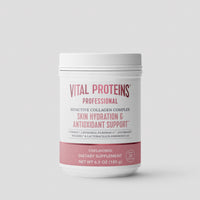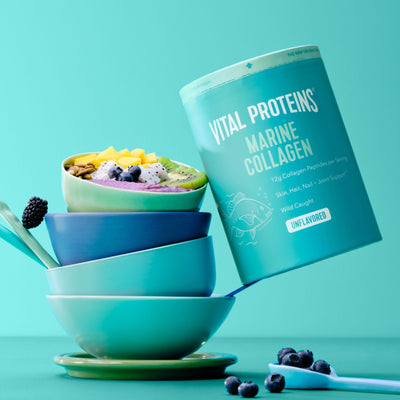Earth Day, which commenced in 1970, is an annual celebration that raises awareness about the importance of long-term ecological sustainability and is meant to "diversify, educate and activate the environmental movement worldwide," according to Earthday.org.
While Earth Day is quickly approaching (it's on Thursday, April 22), you can start making small changes in your food prep and storage now to conserve environmental resources and reduce food and water waste. In the United States, it's estimated that 30 to 40 percent of the food supply is wasted, according to the USDA. Food waste also accounts for 25 percent of the country's freshwater usage, according to Foodprint.
Food and water are important, finite resources, especially now with our current climate. Here are some ways you can reduce food and water waste, straight from the food experts — registered dietitians.
Buy from The Bulk Section
Reducing food waste can start in the grocery store. Erin Hendrickson, RD, recommends shopping in the bulk section to buy exact amounts of ingredients needed to ensure nothing goes to waste. Most bulk sections include grains, nuts, seeds, spices, honey, nut butters, dried fruit, herbs, seasonings, and even coffee and teas.
She adds, "bring your own container to prevent packaging waste as well."
Buy Foods That Last
Along with buying in bulk, buying a variety of foods, including frozen and canned foods with a long shelf life, are great options, too, especially in the times we're experiencing now.
Mary Purdy, RD, adds, "Root vegetables, like potatoes, beets, parsnips and carrots, all last for a long time. Focusing on those kinds of items ensures you don’t have too many moldy or unidentified veggies at the end of the week."
Grow Your Own
Another option to reduce food waste is to grow your own food and plant a garden, which can also help to save money on groceries. Don't harvest the food until it's needed, and if you grow extra, donate it, freeze it for later or distribute it to friends or coworkers.
If you don't have a garden space, there are food subscription services that deliver produce that's perfectly fine to eat, it is just visually "imperfect," which helps cut down on food waste as well.
Related Articles
Save Your Leftover Fruits & Vegetable Scraps
Shannon Garcia, RD, recommends saving all of your vegetable scraps, especially the ends of carrots, celery or onion pieces, in a freezer-safe bag. Pair them with chicken bones to make an easy homemade bone broth or soup.
You can also freeze leftover fruits to use in smoothies or for making fruit and yogurt popsicles, a kid-friendly snack idea. Crystal Karges, RDN, adds, "Instead of throwing fruits away that your kids may take one or two bites of, store the remaining fruit in the freezer to repurpose for later."
Repurpose Foods & Leftovers
Planning meals ahead of time based on ingredients you have is one of the easiest ways to reduce food waste and make your meals easier for the week.
"I love to substitute ingredients in recipes to build a meal based off what I have," says Rebecca Clyde, RDN, of Nourish Nutrition Co. Along with substituting ingredients, you can also repurpose leftovers. For example, make a pasta salad with leftover cooked pasta, or add it to broth to make a soup.
Sarah Gold Anzlovar of Sarah Gold Nutrition also reduces food waste by repurposing foods and leftovers. She says, "almost anything can go over a bed of greens or whole grains to make a salad or bowl. I also toss fruits and veggies that are nearing their expiration date into smoothies and soups to blend in with other flavors."
Perhaps an easy way to help know what food is ready to use is to practice the "first in, first out" rule. Dietitian Brianne Bell suggests keeping the older food options towards the front so you’re more likely to use them before the newer, fresher ingredients so they don't go to waste.

Do Your Cooking and Baking in Bulk
Melissa Traub, RDN, recommends baking several things at once to reduce energy and covering pots and pans while waiting for water to boil to keep the heat in and shorten the cooking time.
Turn the Faucet Off When You're Washing Your Hands or Brushing Your Teeth
Another water-saving tip is to turn the water off when you're not using it. "To save water, turn off the faucet while washing your hands or brushing your teeth," adds Clyde. "If you find yourself waiting for your water to heat up for showers or baths, collect that water to reuse for watering plants or pre-washing dishes."
Use Environmentally Friendly Storage Containers
In terms of food preparation, storing food in glass containers or platinum silicone, rather than plastic containers, is a small step that can greatly benefit the environment. Plus, these containers are more resilient for freezing! If you pack lunches and meals for yourself, your spouse or your children, opt for reusable sandwich bags, snack bags and lunchbox coolers.
Using several of these tips will add up and can help reduce that number, conserve resources for future generations and can save you money.


















